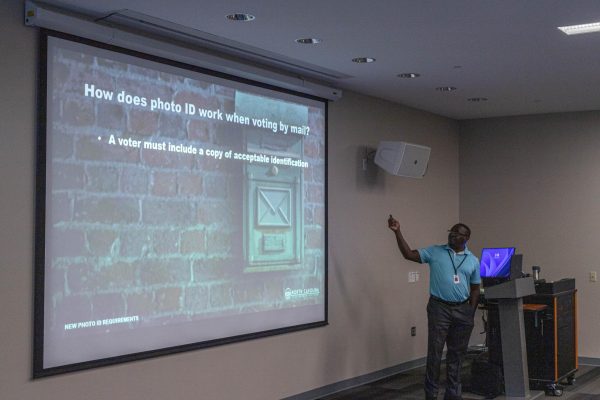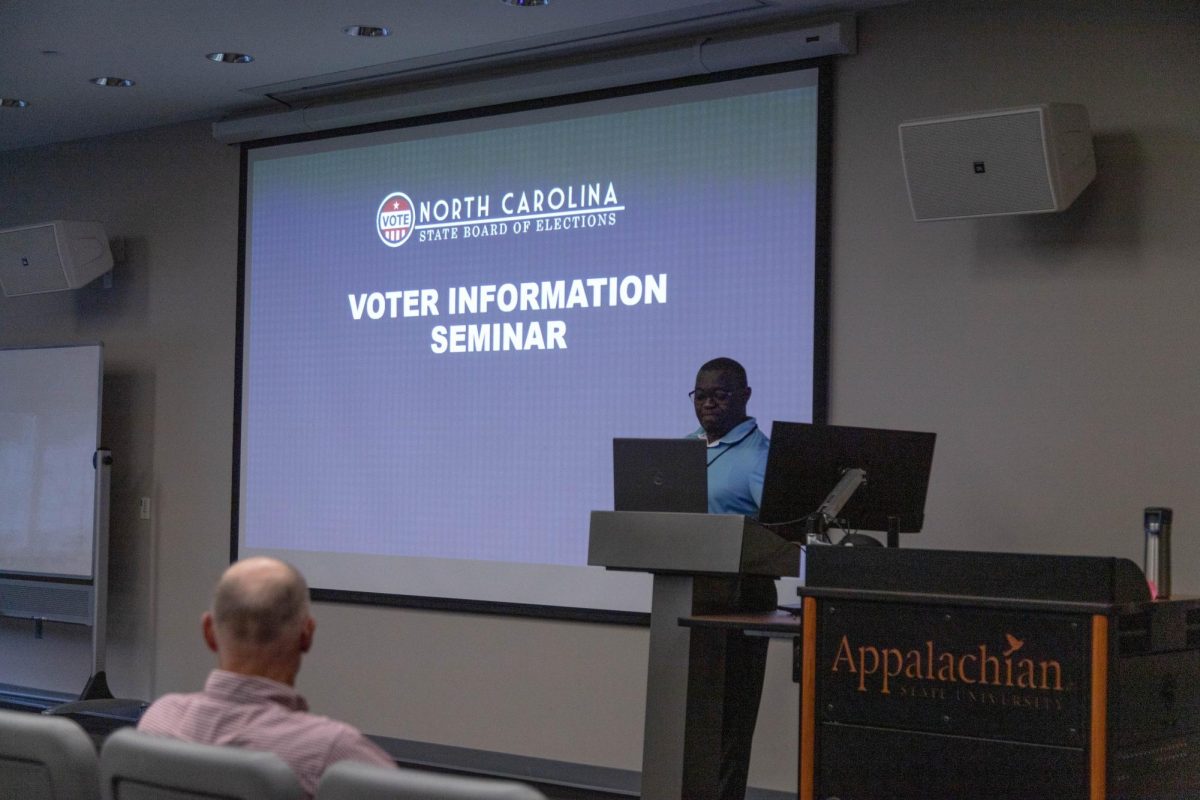The North Carolina State Board of Elections held a voter ID seminar in Belk Library Wednesday.
Beginning in the 2023 municipal elections, North Carolina enacted new Voter ID laws. In order to prepare eligible voters for this year’s elections on Nov. 5, the North Carolina State Boards of Elections is holding seminars across the state to clarify any discrepancies.
Nelson Masinde, a training specialist with the NCSBE, and Watauga County Elections Director Matthew Snyder visited App State to talk about changes to voter ID requirements.
“People did not have to show photo ID in North Carolina in some past elections,” Masinde said. “The law has been brought on and off and on again. This time it looks like it’s going to be a permanent change to the way we vote.”

Voters must present a valid form of identification to the poll worker who they sign in with. Poll workers have three criteria when presented with an ID:
- Whether it is an acceptable form of ID.
- Whether the person checking in “reasonably resembles” the photo on the ID.
- Whether the name on the ID matches the name on the voters record.
The NCSBE maintains a list of acceptable voter IDs through their website.
Certain IDs that are acceptable but cannot be expired for more than one year include:
- Driver’s license, non-operator ID or no-fee ID
- Passport
- State and local employee IDs
- Student IDs
Acceptable IDs that can be used even if they are expired include:
- Military IDs
- Veteran IDs
- Tribal cards
Some options are time sensitive. Out-of-state IDs are acceptable if the voter has registered in North Carolina within 90 days, as well as driver’s licenses that have been expired for less than one year.
People aged 65 and older can present their driver’s licenses to vote even if the license is expired.
College students in North Carolina are allowed to use a student ID to vote. This includes AppCards that students at App State use to enter buildings.
The NCSBE maintains a full list of government agencies and universities where identification is acceptable.
If none of these can be produced, voters can get a standard identification card from the Division of Motor Vehicles, or a voter ID card from their county board of elections.
The board of elections issues these cards free of charge, and needs the voter’s name, their date of birth, the last four digits of their social security number and a picture of the voter. These can be replaced free of charge for 10 years. Steps to get a free voter ID can be found on the NCSBE website.
If a voter cannot produce an acceptable ID on Election Day or if there is any question of eligibility, they will be issued a provisional ballot. These are verified and counted in the days after the election.
Snyder explained that alongside the new voter ID law is another obstacle eligible voters face: registering in the wrong county, which he said is prevalent in Watauga County.
“We see a lot of times students drive home over the summer and get their license renewed and unknowingly register to their old address,” Snyder said. “They come back up here in the fall to vote and they find that they’re registered in the wrong county.”
To avoid this, students can visit the NCSBE website and go to the “voter search” section. This allows them to see how they are registered and if they need to change anything.
For those in Boone who want more information and ways to get involved, Masinde will hold the seminar again on Sept. 18 at 5:30 p.m. in the Watauga County Administration Building.



